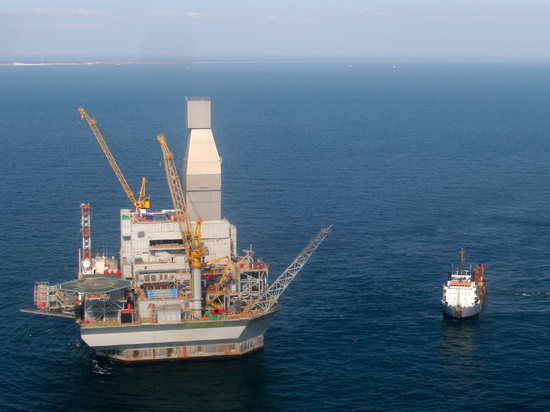Named the benefits for Russia from the conflict between the US and OPEC +
[ad_1]

The cold oil war between America and the participants in the OPEC+ deal seems to be entering a new phase. President Joe Biden responded to the alliance’s unprecedented decision to cut oil production by 2 million barrels per day with an equally drastic step: he ordered an additional 10 million barrels from the US strategic reserve to be “thrown” on the market in November. In general, the scythe found a stone, and the consequences of this collision can be completely unpredictable. Including for Russia.
The interests of the parties fundamentally diverge: the OPEC+ producing countries seek to maintain quotes at a comfortable level of $95-100 per barrel, while Washington wants to reduce them as much as possible. The oil-producing states are afraid of a slowdown in the global economy, and the United States is afraid that gasoline for the American population will rise in price beyond measure.
Calling the OPEC+ decision short-sighted, Biden cited low- and middle-income countries “that are already suffering from higher energy prices” as its primary victims. It seems that without a certain amount of cunning here it could not have done.
This is the biggest decline in oil production in the practice of the alliance since May 2020. By autumn, the parties to the deal were expected to fulfill their obligations under the then-original OPEC+ agreement, which assumed a total reduction in production of 9.7 million b/d.
Then the quotas gradually increased, but by the fall of 2021, their size began to diverge from the real possibilities of the OPEC+ countries to increase production.
The situation became more complicated in 2022: in Russia, due to sanctions, production fell and did not recover to the level of February. In mid-August, Saudi Energy Minister Abdulaziz bin Salman said the paper oil market was too volatile, “in a state of schizophrenia” and pulled away from the physical oil market. According to the Financial Times, it was the Saudi side, together with Russia, the other largest exporter in OPEC +, who insisted on reducing production by 1-2 million bpd.
“The large-scale conceptual oil war between the US and OPEC+ has been going on for a long time,” says Artem Deev, head of the analytical department at AMarkets. – Even Barack Obama proposed to create a cartel of buyers as a counterbalance to the cartel of producers. Official Washington is promoting the idea of a price ceiling not only for Russia, but for all world oil. It is rejected even by American oil companies: this is fraught with an imbalance in the global commodity market.”
The decision of OPEC + is strategically justified: against the backdrop of increasing risks of a general recession, demand for oil will decline, which means that production needs to be brought in line with consumption.
According to Deev, this will support a comfortable price level for producers: OPEC + did not forget the lesson of 2020, when, due to the pandemic, quotes fell to multi-year lows, which hit the economies of the alliance countries hard. And the fact that the United States intends to allocate 10 million barrels from its strategic reserves is of no cardinal importance for the market: it will only slightly and briefly keep prices from strong growth. For comparison, world consumption is about 100 million bpd.
Biden’s statement is addressed rather to the American public: they say, do not worry, gasoline will not rise in price.
True, the White House is silent about the fact that US oil reserves have fallen sharply and that they will soon have to be replenished, moreover, at current world prices.
“As for Russia,” Deev sums up, “any events leading to an increase in the cost of raw materials play into her hands. This leads to an increase in company revenues and the budget, even in the face of sanctions and reduced exports to Europe.”
From an economic point of view, one cannot find fault with the actions of OPEC +, argues TeleTrade analyst Alexei Fedorov: in 2023, global demand for raw materials will almost certainly fall, and in the context of a critical underinvestment in the oil industry, exporting countries are vitally interested in keeping current prices in $90-95 per barrel of Brent. Tomorrow may be too late: the investment cycle in oil production is quite long.
But if we consider the decision of the alliance in a political context (now the Joe Biden administration is desperately fighting for the results of the November elections to the US Congress), then it looks like a clear playing along with the president’s opponents from the Republican Party. It is beneficial for Russia only as a measure to maintain the stability of oil prices. According to Fedorov, Moscow should not cut production: its volumes already lag behind the OPEC + quota by about 1.2-1.3 million bpd.
“10 million barrels of US strategic reserves is not such a large amount to collapse market prices,” said Vladislav Antonov, financial analyst at BitRiver. – Speculators are well aware that America will not be able to put pressure on everyone with its authority, since its raw material reserves are at their lowest levels in 38 years. OPEC+ is trying to keep the market from collapsing and, anticipating a decline in demand, is proactive. As for Russia, we must wait until the West decides on the parameters of its sanctions price ceiling. Perhaps the situation for us will not be so deplorable.”
[ad_2]
Source link






